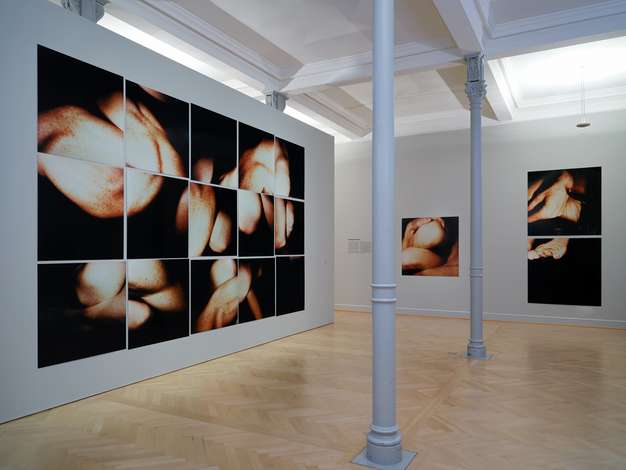Gallery news

Hannah Villiger: Sculpting the Self
Kunstmuseum St.Gallen
The Kunstmuseum St.Gallen is dedicating a Cabinet exhibition to the Swiss artist Hannah Villiger (1951-1997), shedding new light on her innovative, cross-disciplinary work in the field of artistic photography. Best known for her large-format, often multipart works based on Polaroid photographs, Villiger described herself as a sculptor who used photography as her primary medium. Her work, which bridges photography and sculpture, contributed significantly to the expansion of photography as a medium of artistic expression. The camera was for her primarily a means to explore and examine the sculptural qualities of a photographic subject from various perspectives.
"Through the viewfinder of my camera - the feeling: me with the object"
The exhibition presents key works from Villiger's iconic Block and Skulptural series of the 1990s, alongside lesser-known and rarely shown groups of works from the 1970s and 1980s. Villiger's sculptural thinking extended far beyond the depiction of her own body. Her immediate, often urban surroundings - such as high-rise buildings, trees, or city skylines - were also transformed into "bodies" as she mapped their forms and surfaces with her camera. Her enduring interest lay in the relationship between the self and its environment. Through fragmentation and shifts in perspective, her work consistently challenges our habitual ways of seeing.
The exhibition is being organized in close collaboration with the THE ESTATE OF HANNAH VILLIGER Foundation.